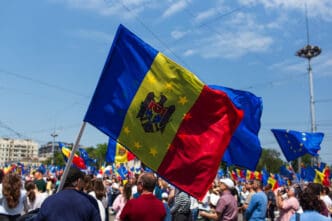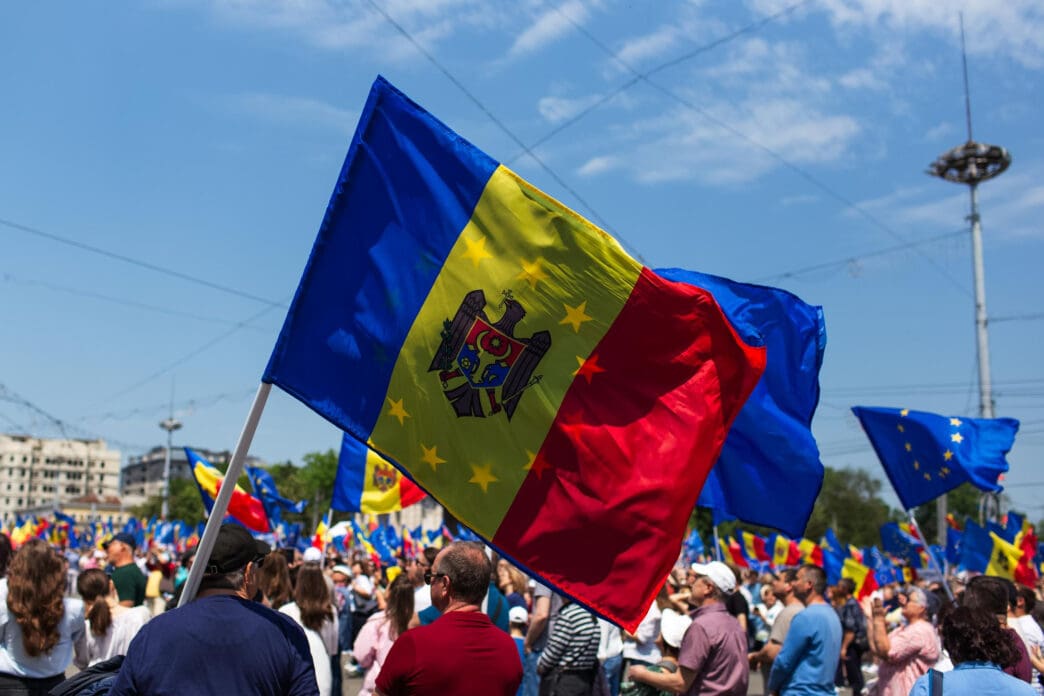Executive Summary
The Story So Far
Why This Matters
Who Thinks What?
Moldova’s ruling pro-European Party of Action and Solidarity (PAS), led by President Maia Sandu, secured a narrow victory in Sunday’s parliamentary elections, garnering 50.03 percent of the vote according to near-complete results released Monday. The critical vote, which saw the pro-Russian Patriotic Bloc come in second with 24.26 percent, was significantly overshadowed by widespread accusations of Russian interference and disinformation campaigns aimed at disrupting the country’s trajectory towards European Union integration.
Election Outcome and Political Landscape
With over 99.5 percent of ballots counted, PAS secured a fragile majority in the 101-seat parliament, a slight decrease from the 52.8 percent it won in 2021. Analyst Andrei Curararu of the Chisinau-based think tank WatchDog.md noted that while PAS has statistically guaranteed a majority, forming a functional government could prove challenging. Curararu also warned of potential Kremlin tactics, including protests, bribing Members of Parliament, and other disruptions to a stable pro-European government.
The election’s stakes were high for the small European Union candidate nation, which shares a border with Ukraine and hosts a pro-Russia breakaway region. These elections were viewed as crucial for Moldova to maintain its commitment to EU integration, a path initiated following Russia’s 2022 invasion of Ukraine.
Allegations of Russian Interference
The ballot was marked by concerns over vote buying, potential unrest, and what the EU described as “an unprecedented campaign of disinformation” from Russia. Moscow has consistently denied these allegations. President Maia Sandu, after casting her vote, explicitly warned of “massive interference of Russia” in the electoral process.
Moldova’s cybersecurity service reported detecting and neutralizing several attempted attacks on electoral infrastructure on Sunday. The government has accused the Kremlin of spending hundreds of millions in “dirty money” to influence the campaign, leading to hundreds of searches and dozens of arrests related to alleged “electoral corruption” and “destabilisation attempts” in the lead-up to the vote.
Reactions and Voter Sentiment
Igor Dodon, a former president and co-leader of the pro-Russian Patriotic Bloc, called for “peaceful protests” on Monday, accusing PAS of vote theft. He stated that his party would not recognize the election results if falsifications were found overnight and would demand a repeat of the parliamentary elections.
Voter turnout stood at approximately 52 percent, consistent with the previous parliamentary elections in 2021. While many voters expressed a desire to remain on the European path, others voiced frustration over economic hardship in the country, one of Europe’s poorest, and scepticism towards the EU accession drive. A 51-year-old locksmith and welder, identified only as Vasile, expressed a wish for “higher wages and pensions” and for “things to continue as they were during the Russian times.”
Transnistria’s Counter-Accusations
Adding another layer of complexity, authorities in the breakaway region of Transnistria accused Chisinau of “numerous and blatant” attempts to limit the vote of Moldovans residing in the separatist territory. They claimed this was achieved by reducing the number of polling stations and employing other restrictive tactics.
Looking Ahead
The recent parliamentary elections underscore Moldova’s ongoing geopolitical struggle, with the pro-EU government navigating both internal economic discontent and external pressures from Moscow. The PAS’s fragile majority highlights the persistent divisions within the nation as it seeks to solidify its European path amidst accusations of foreign interference.








